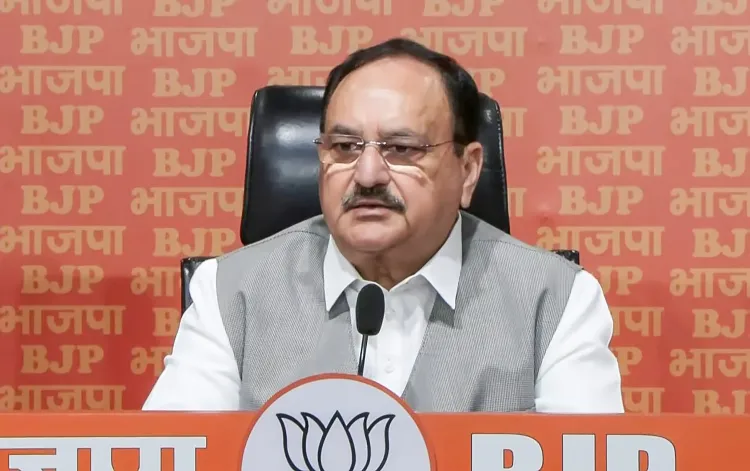Are 'Next-Gen' GST Reforms Set to Slash Healthcare Costs and Promote a Fit, Healthy Bharat?

Synopsis
Key Takeaways
- GST reforms cut tax rates for essential medicines.
- Health and life insurance are exempt from GST.
- Focus on preventive health with affordable wellness services.
- Support for the underprivileged and middle-class citizens.
- Empowerment of small businesses through reduced tax burdens.
New Delhi, Sep 4 (NationPress) Union Health Minister J.P. Nadda emphasized that the recent reforms in the Goods and Services Tax (GST) are genuinely next-gen, stating that they will significantly reduce healthcare expenses and contribute to a fitter, healthier Bharat.
The GST Council, led by Finance Minister Nirmala Sitharaman, made a pivotal decision on Wednesday to streamline the indirect tax system, cutting the existing four slabs to just two—eliminating the 12% and 28% rates while keeping the 5% and 18% categories.
With these adjustments, essential medications, health-related products, and specific medical devices will benefit from a tax reduction from 12%/18% to either 5% or none.
The implementation of these amended GST rates for services is set for September 22.
“These historic GST reforms under the foresighted leadership of PM Narendra Modi Ji represent a monumental step towards affordable healthcare for everyone,” Nadda noted in a post on the social media platform X.
He pointed out that essential drugs and medical devices will now have a 5% or no GST. Additionally, health and life insurance will be exempt from GST, along with cheaper spectacles and diabetic food options. “This represents a true next-gen GST for a healthier India,” he added.
Moreover, the GST reduction extends to medicines, medical apparatus, and diagnostic services. Nadda highlighted that making gyms and wellness services more affordable underscores the government's priority on preventive health—aiming for a Fit & Healthy Bharat.
These next-gen GST reforms are expected to bolster ongoing growth and development, he explained.
Addressing the zero GST on life-saving medications, including those for cancer and rare diseases, the Health Minister reiterated that the “reforms affirm our government’s dedication to the underprivileged and middle-class citizens.”
“Lower tax rates on essential goods will improve the ease of living, assist families in managing their finances, and provide relief across various sectors,” he stated.
Beyond enhancing health services, Nadda mentioned that these reforms will also “strengthen the ease of doing business and empower small enterprises nationwide.”
“PM Narendra Modi Ji’s vision of Ease of Living is clearly reflected in the GST rationalization,” he concluded.









